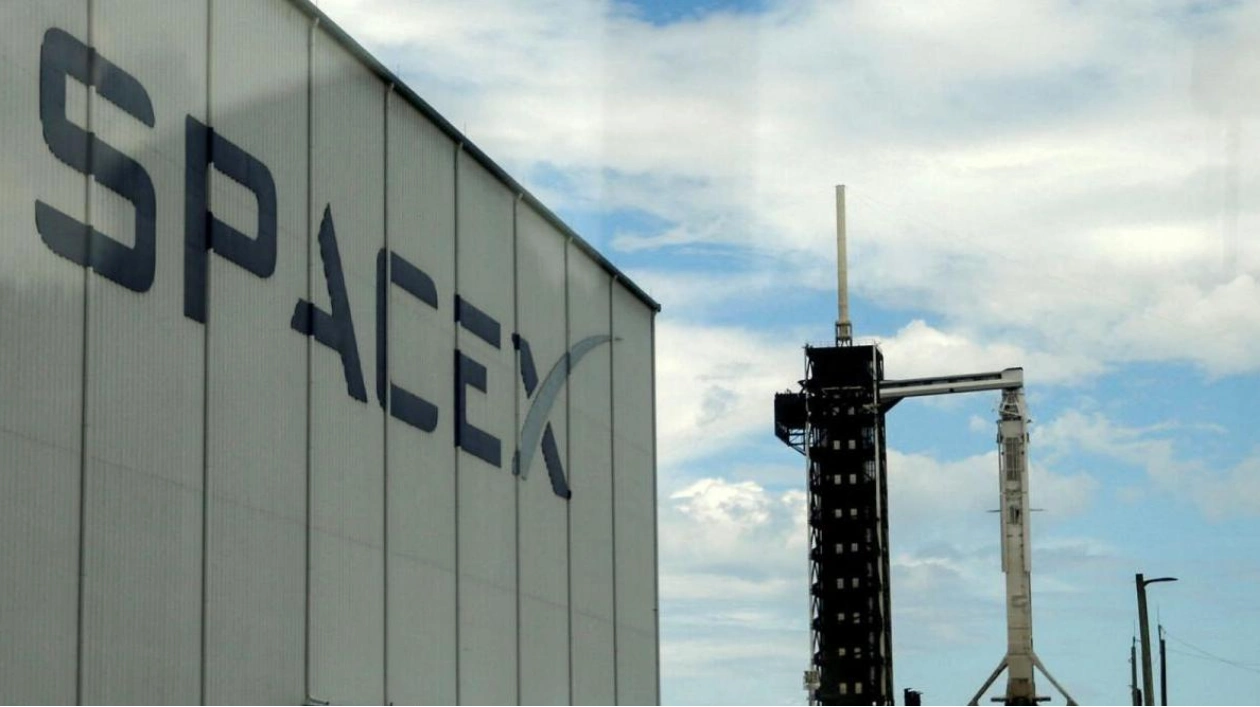The US Federal Aviation Administration (FAA) announced on Wednesday that SpaceX's reliable Falcon 9 rocket has been temporarily halted after a failed attempt to land back on Earth during a regular Starlink mission, marking the company's second suspension this year. SpaceX's Falcon 9 successfully deployed a group of Starlink internet satellites into orbit early Wednesday morning from Florida. The reusable first stage booster of the rocket returned to Earth and attempted to land on a sea-faring barge as customary, but it tipped into the ocean after a fiery touchdown, as shown in a SpaceX live stream.
"The incident involved the malfunction of the Falcon 9 booster rocket during its landing on a droneship at sea. No public injuries or damage to public property have been reported. The FAA is mandating an investigation," stated an FAA spokesperson. Groundings of Falcon 9, a rocket heavily relied upon by much of the Western world for satellite and human space missions, are uncommon. The rocket was last grounded in July, the first time since 2016, due to a second-stage failure in space that resulted in the loss of a batch of Starlink satellites.
Although no satellites or individuals were at risk during Wednesday's flight, the landing failure suggests a malfunction within the rocket that the FAA believes could present a higher risk in future missions if not thoroughly examined. The grounding of the rocket could postpone the launch of SpaceX's prominent Polaris Dawn mission, which involves four private astronauts attempting the first private spacewalk. The Polaris mission, initially planned for this week, has already been delayed due to a launchpad issue and then again due to inclement weather.
Following the July grounding, SpaceX resumed Falcon 9 flights 15 days later, after the FAA approved the company's request for an expedited return to flight. Falcon 9 is also scheduled to launch two NASA astronauts in late September aboard a Crew Dragon spacecraft, which will bring home the two astronauts currently stranded on the International Space Station after traveling on Boeing's problematic Starliner spacecraft. NASA oversees Falcon 9 for its own missions, and it remains unclear how the latest grounding will impact that NASA mission. The US space agency did not immediately respond to a request for comment.
SpaceX has developed a substantial fleet of reusable Falcon boosters since the rocket's inaugural launch in 2010, enabling the company to significantly surpass its competitors in launch frequency. The booster that failed on Wednesday was on its 23rd flight, according to SpaceX's X post. "After a successful ascent, Falcon 9's first stage booster tipped over following touchdown on the A Shortfall of Gravitas droneship," SpaceX stated, referring to the large ship intended for the booster's landing. Another Starlink mission was scheduled for launch shortly after Wednesday's flight from SpaceX's other launch site in southern California, but the company postponed that mission following the landing failure.
The FAA oversees private rockets and launch site safety to ensure they do not endanger the public. On Wednesday, the agency required SpaceX to initiate an investigation, which the FAA will supervise. "A return to flight of the Falcon 9 booster rocket is contingent upon the FAA determining that any system, process, or procedure related to the anomaly does not compromise public safety," the FAA explained.






